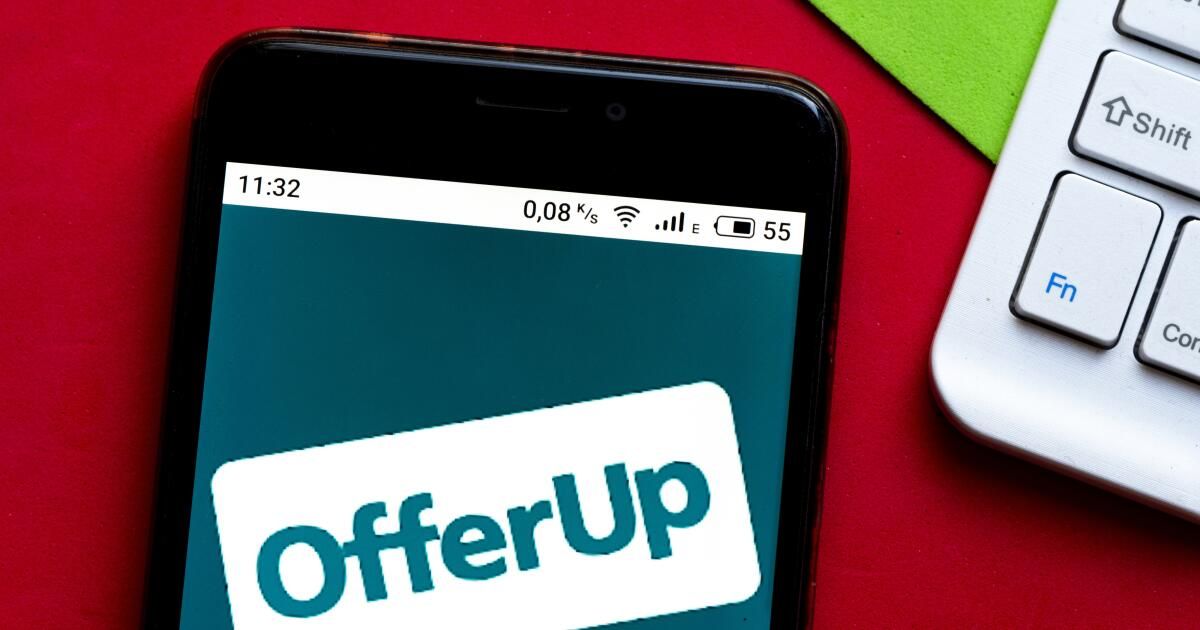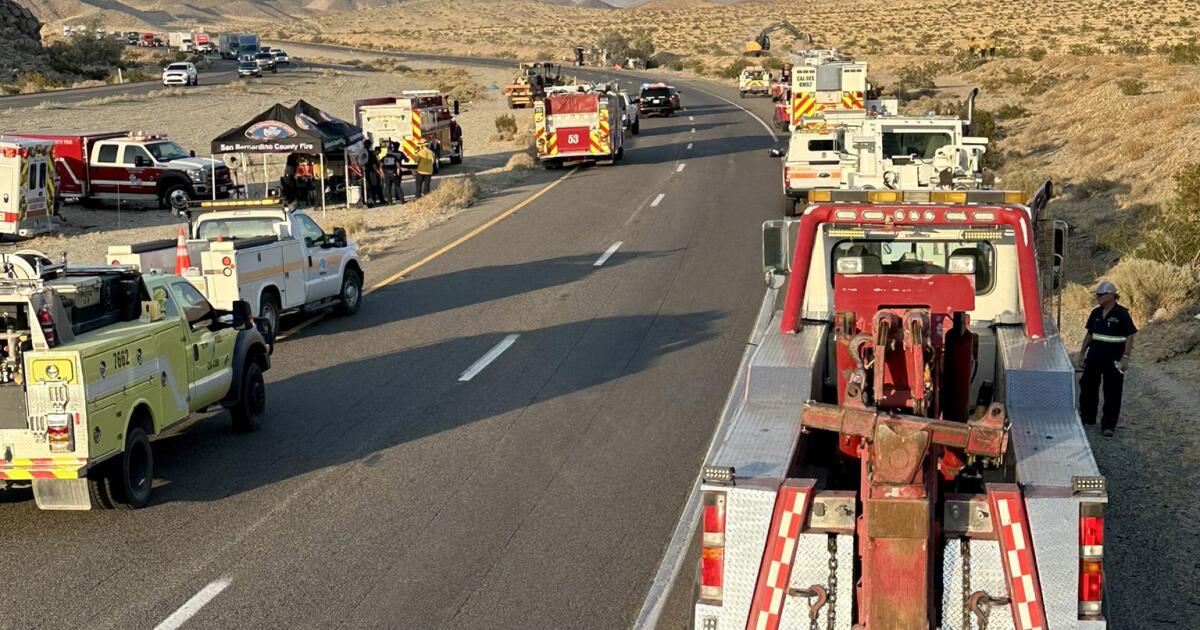A Pomona couple selling an iPad was held at gunpoint and attacked during a meeting with a potential buyer, a crime that experts say happens all too often but can be avoided if online sellers take some common sense steps. to ensure a safer selling experience. .
Two teenagers who were accused of committing the armed robbery on Dec. 23 were taken into custody on Jan. 3 and then taken to juvenile hall, said Aly Mejia, spokesperson for the Pomona Police Department.
One of the victims, Eduaro Reyes, told KTLA-TV Channel 5 that he met the potential buyer through OfferUp, an online marketplace where users can sell their items to local buyers.
Reyes met the buyer in a residential neighborhood, but when he got out of his car, a teenager aggressively pushed the barrel of the gun into Reyes’ neck as he tried to grab the iPad.
The second teen ran from the street corner to ambush the couple, according to footage obtained by KTLA.
Reyes told KTLA that he sold more than 50 items through the OfferUp platform without problems.
Online marketplaces are a common place for people to sell used items, but most users have a false sense of security when using the platforms, said Iskander Sánchez-Rola, director of privacy innovation at the cybersecurity network. General.
Although online marketplaces appear to be safe ways for buyers and sellers to interact, he said users should be skeptical and take steps to ensure their safety and privacy online and in person when using the platforms.
Do not share personal information
There are many online marketplaces that allow you to list and sell your used items for free, while others take a percentage of the transaction.
Craigslist, which began as an email listserv in 1995, dominated as a virtual classified ad for just about anything you can think of, including bicycles, patio tables, and guitar amplifiers. But online savings have grown to platforms like EBay, OfferUp, Depop and Facebook Marketplace.
When you are creating an account or using an existing marketplace account, make sure you access it with a secure computer. Avoid using public computers or connecting to public Wi-Fi because scammers can hack your computer and steal information.
As with any online platform, limit your digital footprint. Sánchez-Rola said not to post or share personal information, including your phone number, address, Social Security number, banking information or credit card information.
ADT, a residential and business security company, recommends using a proxy email address so you don’t receive spam to your personal email address after buying or selling online.
If you share your phone number, for example, scammers may try to retrieve information linked to it.
When deciding which marketplace to use, remember that the most secure platforms won’t ask you to post personal information, Sánchez-Rola said.
If you want to go the extra mile, turn off your camera’s location feature when taking photos of the item. Photos taken with your smartphone have location and other information embedded in the image. Sánchez-Rola said some marketplaces will remove that information when you upload the image, but others will not.
Verify the seller or buyer
Each account user, buyer or seller, must have a public profile that has their name and a photo of the account user along with listings of past and present items.
Sánchez-Rola and other experts shared some red flags of potential scam profiles:
- A blurry photo or no photo in the profile.
- A blurry photograph for the item listing.
- There are no previous listings or only one listing.
- There are no reviews of previous sales.
- Negative reviews from a seller who doesn’t follow through with a sale.
You can go the extra mile and try to check if a photo is fake using a reverse image search (Google shares steps on how to perform this search). Scammers can steal photos and create fake accounts.
User accounts typically have information on the number of successful or completed sales, as well as reviews. Sánchez-Rola said that profiles that have positive reviews and several sales have more validity than an account that has no sales, comments or profile photo.
A major red flag is an expensive item being listed at a very low price. For example, if a seller offers a $1,000 iPhone 15 Pro max for $200, that’s not realistic, Sánchez-Rola said. Remember, if it’s too good to be true, it probably is.
Other potential red flags to watch for include when a person asks you to communicate outside of the market.
Sánchez-Rola said that most, if not all, platforms have a communication system and he advises staying on it.
AARP recommends keeping the conversation focused on the product. Don’t be talkative because you could accidentally share information about yourself.
If you can avoid it, Sánchez-Rola also advises that payment be made through the market as well. Sharing information for Venmo, Paypal, or other money transfer services puts your personal information at risk.
Meet safely
Some marketplaces have the option of mailing the product to the buyer, and if you choose to do so, experts suggest using a PO Box and never sharing your personal address.
If you choose to deliver the product in person, Sánchez-Rola said payment must be made through the market beforehand.
Experts say buyers and sellers should attend these meetings with the bare minimum.
“Don’t show up with the new watch you got for Christmas,” Sánchez-Rola said.
Law enforcement officials, including the Pomona Police Department, recommend that you choose a safe, busy, public and well-lit location. Never invite strangers to your home to pick up an item.
Some police departments have designated safe exchange zones, places that are typically under video surveillance. The Los Angeles Police Department launched several locations and worked with OfferUp to get location information on the platform.
Safe Trade Station also lists which police departments have safe trade locations. Others recommend using police stations or police department parking lots to conduct a transaction, but first call your local police department to see if they have a secure location.
Whether you meet in a public place or in a designated safe area, experts say never go alone. Bring a friend or family member and tell another trusted person the details of the meeting.












